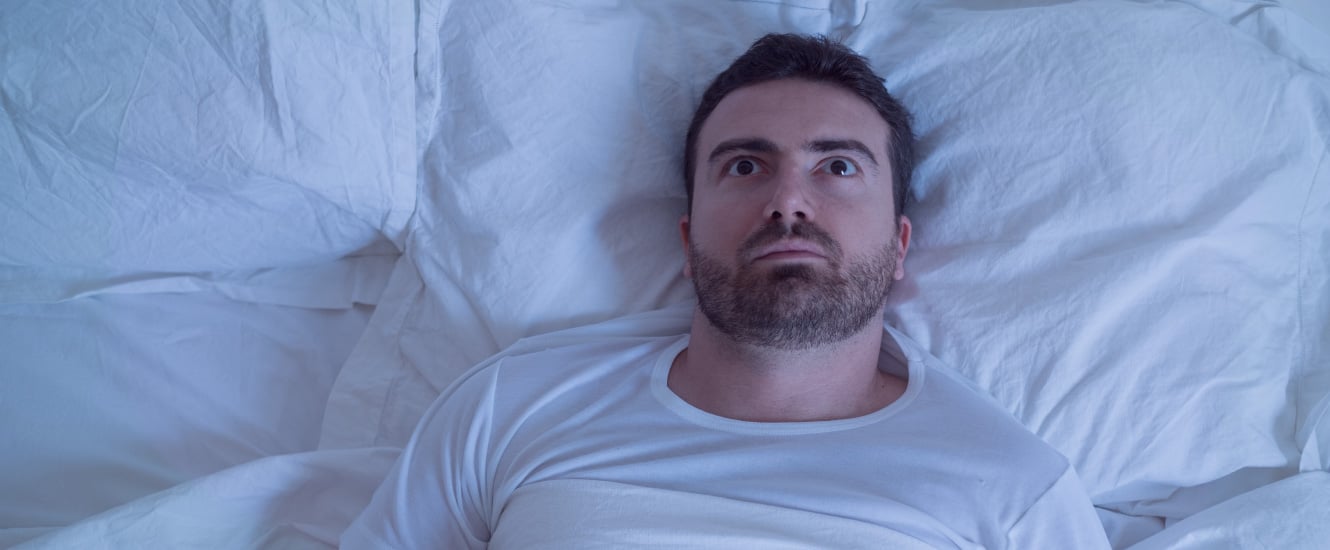Sleep is a precious commodity that everyone needs to function. Individual sleep needs are different; some people need a few extra hours while others need less. Some people are light sleepers, while others “sleep like logs.” Sleep habits can also change temporarily, for example during college or after a baby is born. Despite varying needs, all people need adequate sleep to function. Sleep loss negatively affects work performance, mood and overall health. In light of this, it is important to identify factors that are causing you to lose sleep. It’s important to speak with your doctor to see if ongoing sleep problems are caused by clinical insomnia.
How do I know it’s clinical insomnia?
Clinical insomnia is diagnosed by having all of the following 3 conditions1:
- Difficulty falling asleep, staying asleep, or waking up too early
- The above difficulty occurs even with plenty of time to sleep in an ideal environment
- Sleep loss causes decreased function during the daytime
What causes insomnia?
Historically, insomnia has been viewed as a condition that occurs secondary to another disease or condition. Recent studies show us that insomnia does occur by itself without any identifiable reasons1. You should still check with your doctor to see if another medication you take or condition you have is causing insomnia.
Treatment of insomnia
First line treatment for insomnia includes behavioral counseling and improving sleep hygiene. For information on non-drug therapies, check out our previous blog post written by Jenny Bingham, PharmD. Should you and your doctor decide to use medication to treat insomnia, it is important to tell your doctor about other medication you are taking as well as any conditions you have.
Over the Counter Medications
- Antihistamines purchased over the counter are commonly used to induce sleep as they can cause drowsiness1. While they are helpful, these medications should only be used short term. If your problems with sleep continue, you should consult with your doctor to ensure you get the appropriate treatment.
Prescription Medications for insomnia
- Benzodiazepines are medications used for sleep as well as anxiety. They have strong sedative effects and are controlled substances because they may be habit forming.
- Non-benzodiazepines include other sleep drugs with varying mechanisms. They differ from benzodiazepines in that they usually have less anti-anxiety effects. Some of these drugs are approved only for short term use; while drugs formulated as extended release are better suited for long term use1.
- Antidepressants can be used for sleep as many of them have a sedating effect. These are particularly useful in people who concurrently suffer from depression or anxiety, because the drug is also treating a potential cause of insomnia. The only antidepressant specifically FDA approved for insomnia is Silenor (doxepin) 1.
- Other drugs are used for insomnia that have unique mechanisms
- Rozerem (ramelteon) is a drug that encourages your body to release melatonin, which makes you sleepy. It has less side effects and less addiction potential than other drug types. It is also not a controlled substance.
- Belsomra (suvorexant) is a first of its kind drug that blocks molecules in your brain that encourage wakefulness1. Because it has a long half-life, it can still cause day time drowsiness. It is a controlled substance due to abuse potential.
General Considerations
- Sleep medications can make you drowsy, dizzy or experience day time sedation.
- Many medications used to treat insomnia have a potential to be habit forming. They may also worsen insomnia if stopped suddenly. Use them exactly as directed by your doctor.
- Sleep medications can impair your ability to perform tasks, so it is crucial to only take them once you are ready for bed. Do not use alcohol as impairment may be worsened.
Considerations in the Elderly
- Since most sleep medications cause drowsiness to induce sleep, they can be especially dangerous when used in the elderly. This is true of both over the counter sleep medications (like diphenhydramine) as well as prescription drugs. This drowsiness can cause confusion, memory issues and serious falls. Consult your pharmacist or doctor before starting sleep medication.
References:
- Arand DL, Bonnet MH. Treatment of insomnia in adults. In: Basow DS, ed., UpToDate. Waltham (MA): UpToDate; 2016
Download the free WellRx app from the iOS app store or the Google Play Store,
and get registered to take advantage of our free medication adherence tools.
If you’re struggling to afford your medications,
visit www.WellRx.com to compare the cash discount price at pharmacies near you.
You may find prices lower than your insurance co-pay!













 Store & manage your medication list
Store & manage your medication list Medication pricing updates
Medication pricing updates Pill & refill reminders
Pill & refill reminders Medication journal & mood log
Medication journal & mood log